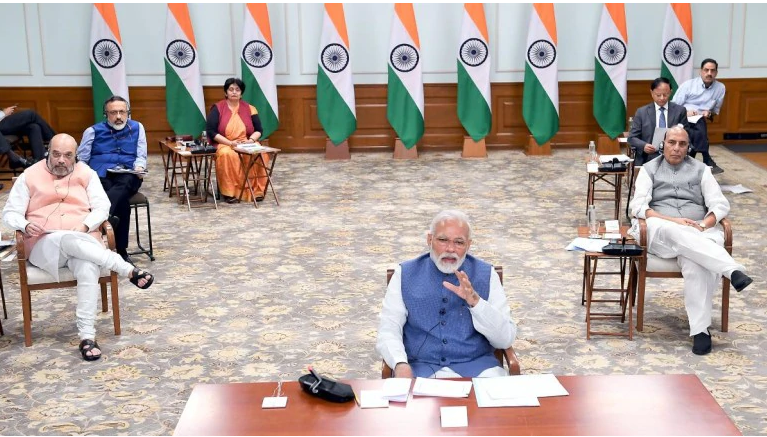MHA has issued guidelines that states and the public must follow during the ban
The center has announced that some industries will be operational after April 20
The sale of alcohol, tobacco and gutka was banned during the ban
The Home Office has issued detailed guidelines for states, Union territories, and the general public to follow during the extended ban until May 3.
One day after Prime Minister Modi announced the extension of the nationwide ban until May 3, MHA issued a series of guidelines to be followed during the ban.
The government has eased the burden on the industrial sector somewhat. Production units and industries that work in special economic zones (SEZ) have been made easier for operations during the closure.
Read also | Are you allowed to leave your home in Lockdown 2.0? Read these new government policies
Governments of states and territories of the Union were asked to strictly comply with the MHA guidelines and not to water them down in any way. However, governments can impose stricter measures in accordance with local requirements.
Guidelines during suspension:
1. A strict ban on the sale of tobacco, gutka and spirits was imposed during the vesting period. Spitting was made a criminal offense.
2. The government has allowed industries operating in rural areas outside of urban areas to resume operations as of April 30, but with strict standards for social distancing.
3. Meetings and marriages are monitored and regulated by the district judge.
4. Production and industrial companies that operate in special economic zones (SEZ) and export-oriented units (EOU), industrial areas and industrial communities may resume operations after April 20. These establishments must make arrangements for the stay and transportation of its workers according to requirements.
5. Production units that produce essential goods such as pharmaceuticals, pharmaceuticals, etc. may work.
6. All educational and training facilities, etc. remain closed, taxis (including auto and bicycle rickshaws) and cab aggregator services are prohibited until May 3. Cinemas, shopping centers, shopping / sports facilities, gyms, swimming pools, theaters, bars etc. will remain closed until May 3rd.
7. Wearing a face mask is mandatory in all public places and workplaces. Spitting in public places will be fined.
8. The work areas were asked to review all employees and to take a 1 hour break between shifts and staggered lunch breaks, etc.
The Home Office (MHA) issues national guidelines for the management of # COVID19. Wearing facewear is mandatory in all public places and workplaces. Spitting in public places will be fined.
Twitter Ads info and privacy
1,217 people talk about it
9. All international domestic flights will be suspended until May 3rd. All trains remain suspended.
10. All social, political, sporting, religious functions, religious sites and places of worship are closed to the public until May 3rd.
11. From April 20, when relaxation will occur in areas that are not coronavirus hotspots, activities are permitted, including agriculture, horticulture, agriculture, agricultural product sourcing, and “mandis”.
12. Business with agricultural machinery, its spare parts, supply chain, repairs and “Custom Hiring Centers” for machines that are to remain open from April 20.
13. Highway ‘Dhabas’, truck repair shops, call center for government activities, which should remain open from April 20.
14. Grocery stores, fruit, fruit and vegetable shops, milk stands, poultry, meat and fish shops that remain open during the closure.
15. Services from independent electricians, IT repairs, installers, car mechanics and carpenters are permitted from April 20.
16. Exceptions from April 20 do not apply to COVID-19 hotspots or containment zones.
17. MNREGA work is permitted with strict implementation of social distance and the use of face masks.
18. Bank branches and ATMs, IT providers for banking, bank correspondents, ATM operation and cash management agencies remain functional.
19. All agricultural and horticultural activities must remain fully functional, e.g. B. farms of farmers and farm workers on site, agencies with the procurement

